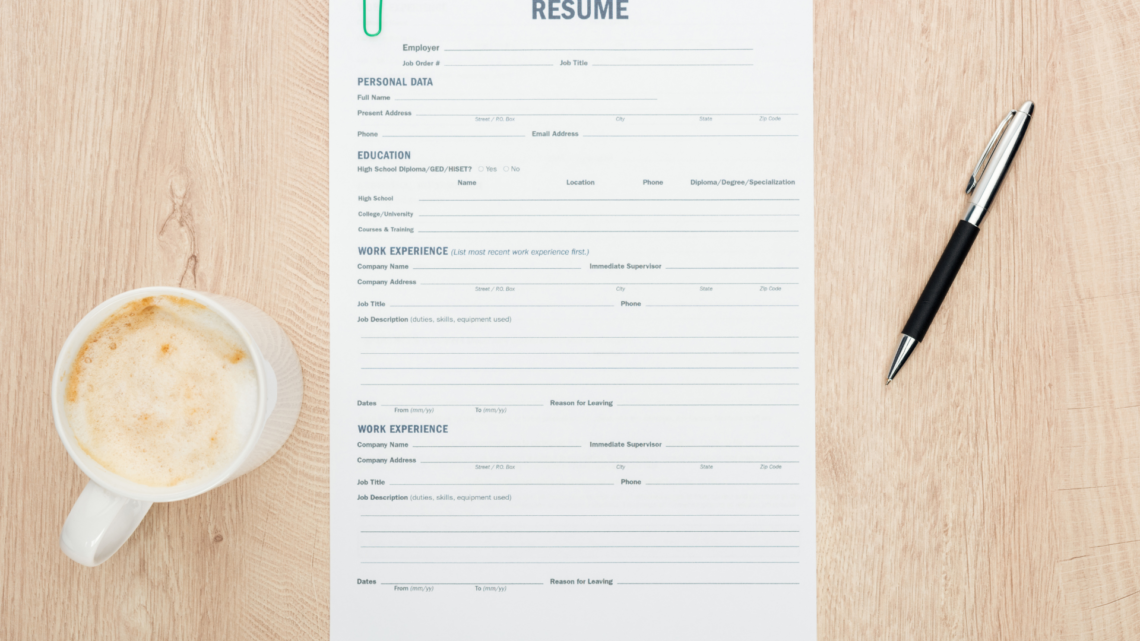Crafting the perfect resume is a bit like cooking the perfect meal. You want just the right amount of ingredients, cooked to perfection and presented beautifully. One of the most common questions job seekers face is how many pages their resume should be. It’s a balancing act between providing enough information to showcase your skills and keeping it concise enough to hold the reader’s attention. Let’s dig into the nitty-gritty of resume length and find out what works best for you.
Understanding The One-Page Resume Rule

For years, the one-page resume has been touted as the gold standard, especially for recent graduates and early-career professionals. The idea is simple: keep it short and sweet. Hiring managers often have stacks of resumes to sift through, and a concise, well-organized one-pager can make a strong impression.
However, the one-page rule isn’t set in stone. It’s more of a guideline than a hard-and-fast rule. If you can fit all your relevant experience and skills onto one page without sacrificing readability or omitting important details, then a one-page resume is ideal. But if you find yourself cramming information or using a font size that requires a magnifying glass, it might be time to consider expanding.
Ultimately, the decision to stick to one page should be based on the quality and relevance of the content, not an arbitrary rule. If you have a wealth of experience or a diverse skill set, you might need more space to do yourself justice.
When To Consider A Two-Page Resume

As you gain more experience in your career, a two-page resume becomes more acceptable and often necessary. Professionals with over 10 years of experience, those in senior roles, or individuals with a ton of community service and volunteer work may find it challenging to condense everything into one page.
Using a two-page resume allows you to provide more context for your achievements and responsibilities. It gives you room to include detailed descriptions of your roles, specific projects and the impact you’ve had in previous positions. This can be particularly important in fields where quantifiable results and detailed project descriptions are very important.
Remember, a two-page resume should still be concise and focused. Avoid the temptation to fill the space with irrelevant details. Every word should serve a purpose and contribute to painting a comprehensive picture of your professional journey. Using the right tools can make this process much easier. Make a professional resume with ResumeNow’s dedicated tools to ensure your resume stands out with the right balance of detail and clarity.
Formatting Tips For A Two-Page Resume
When opting for a two-page resume, ensure that your formatting remains consistent and professional throughout. Use clear headings, bullet points and plenty of white space to make the document easy to read. Each page should include your name and contact information. Use a header or footer to indicate that the document continues onto a second page.
Additionally, prioritize the most important information on the first page. Hiring managers may not always make it to the second page, so make sure your key achievements and skills are front and center. This approach ensures that even if only the first page is reviewed, it leaves a strong impression.
Three Pages Or More: When Is It Appropriate?

Resumes that extend beyond two pages are generally reserved for certain situations and professions. Academics, researchers and professionals in fields that require detailed lists of publications, presentations or projects may find themselves with resumes that stretch to three pages or more. In these cases, the document often resembles a curriculum vitae (CV) rather than a traditional resume.
For most job seekers, however, a resume longer than two pages can be a red flag. It may suggest an inability to prioritize information or a lack of focus. If you find your resume creeping into the three-page territory, it’s worth revisiting the content to ensure every detail is necessary and relevant to the position you’re applying for.
In the digital age, some professionals also maintain comprehensive online profiles or portfolios that complement their resumes. This approach allows them to keep the resume concise while providing additional information through links to online resources.
Strategies For Trimming Down A Lengthy Resume

If your resume is tipping the scales at three pages or more, consider these strategies to streamline it. First, focus on the most recent and relevant experiences. Older positions can be summarized or omitted if they don’t add significant value to your application.
Next, eliminate redundant information. If you’ve held similar roles at different companies, avoid repeating the same duties and instead highlight unique achievements or skills gained in each position. Additionally, consider removing outdated skills or technologies that are no longer relevant to your industry.
Finally, use concise language and action verbs to convey your accomplishments. This not only reduces the word count but also makes your resume more engaging and impactful.
Tailoring Your Resume For Different Jobs

One of the most effective ways to determine the appropriate length for your resume is to tailor it for each job application. This approach ensures that you include only the most relevant information for the position, which can naturally dictate the length of your resume.
Start by carefully reviewing the job description and identifying the key skills and experiences the employer is seeking. Then, customize your resume to highlight those aspects of your background. This may involve adjusting the order of sections, emphasizing certain achievements or even removing unrelated experiences altogether.
Tailoring your resume not only helps with length management but also demonstrates to potential employers that you’ve taken the time to understand their needs and align your qualifications accordingly.
Using Keywords To Enhance Your Resume

Incorporating keywords from the job description into your resume can also help ensure it passes through applicant tracking systems (ATS) and reaches human eyes. These systems often scan resumes for specific terms related to the job, so including them can improve your chances of being noticed.
However, avoid keyword stuffing or forcing irrelevant terms into your resume. The goal is to naturally integrate these keywords into your descriptions of skills and experiences, ensuring that your resume remains genuine and easy to read.
Finding The Right Balance
Deciding on the length of your resume ultimately comes down to finding the right balance between providing enough information to showcase your qualifications and keeping it concise enough to maintain the reader’s interest. Whether your resume is one page, two pages or more, the key is to ensure that every word counts and contributes to your overall narrative.
Remember, your resume is a marketing tool, and its primary purpose is to secure an interview. By tailoring your resume to each job application and focusing on relevant, impactful content, you can create a document that effectively represents your professional journey and sets you apart from the competition.
So, take a step back, review your resume with fresh eyes and make sure it tells the story you want potential employers to hear. With the right approach, your resume can be a powerful tool in your job search arsenal.
Source link





